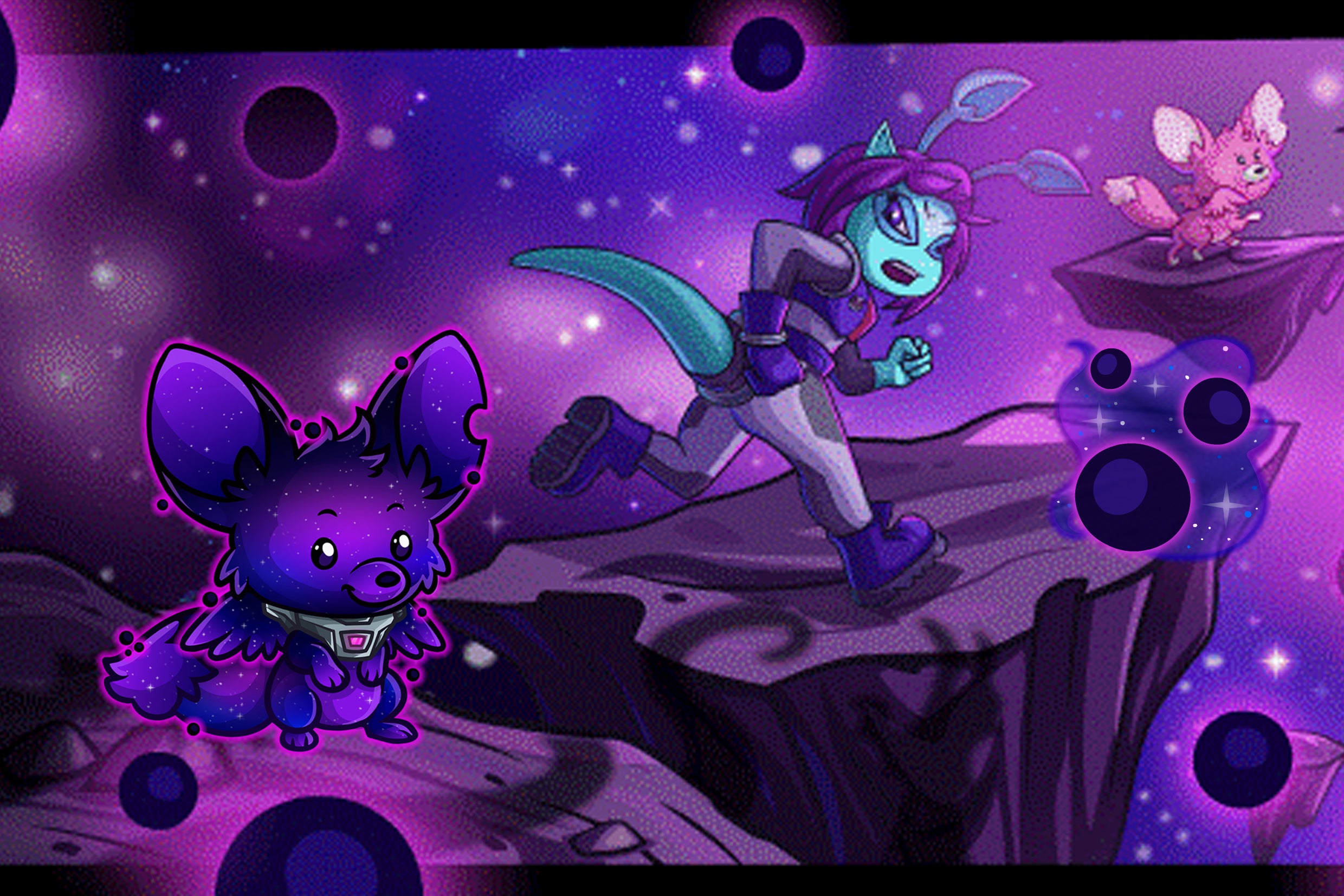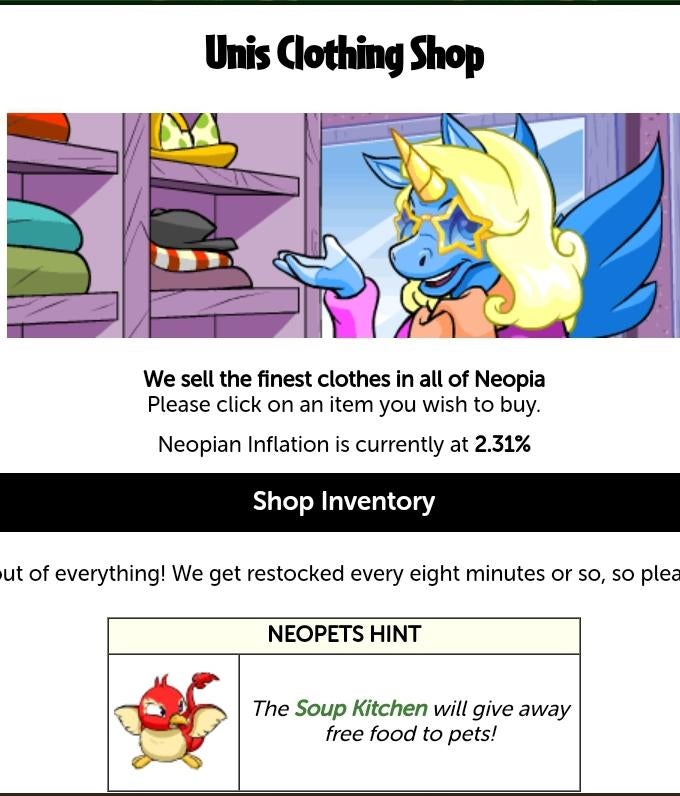The Independent's journalism is supported by our readers. When you purchase through links on our site, we may earn commission.
The ‘Neopets renaissance’: the seminal 2000s game is ready for its revival
Once a household name across America, the seminal Noughties web game has languished for years on digital life support. Io Dodds meets the man trying to restore its former glory – and the players who could make or break his plan


A nasty breakup spurred Maddy to search for comfort — and reclaim her old Neopets account.
Back in 2005, the now 28-year-old social media marketer, had been among tens of millions of children engrossed in the online pet game’s candy-coloured universe.
As she got older, she pushed her Neopets aside for other hobbies. And like many titans of the early web, the site eventually became a shadow of its former self.
Then the pandemic hit, and Neopets saw a mild resurgence as people leaned into comfort and distraction. In a burst of nostalgia, Maddy attempted to regain her account, but she got no response from the game’s much-diminished development team, and abandoned it.
Yet by last August, word was spreading among old players that something had changed.
"I’d seen people getting accounts back, and I wanted to reconnect with my inner child after I lost so much of myself in that relationship," Maddy tells The Independent.
This time, her appeal succeeded – a symptom of the surprise injection of cash and energy from a new management team that hopes to reverse years of technological decay and corporate neglect.
Backed by $4 million in new investment, the Neopets team has bought itself out from its former owners and embarked on an unlikely quest to bring about a "Neopets renaissance".
The company has even recruited pop star John Legend, who says Neopets has "always been a favourite" in his house, as a brand ambassador.
"I’m definitely taking a leap of faith," chief executive Dominic Law, himself a former Neopets player, tells The Independent during a sit-down interview at the Game Developers Conference (GDC) in San Francisco.
"If one day Neopets has to shut down under my leadership, that would definitely haunt me for life. But I believe that if I don’t do it now, it would haunt me further to know that Neopets died without me trying to revive it."

Standing in his way is an obstacle course of problems ranging from a creaking, glitch-strewn website to a hyperinflated virtual economy dogged by bots and black marketeers.
To succeed, he will need to lure back millions of former ‘Neopians’ like Maddy — while retaining existing players who have been accumulating vast amounts of virtual wealth and property in their absence.
Players who spoke to The Independent say they are hopeful but sceptical about Law’s plan. Some felt alienated by the game’s divisive 2021 pivot into cryptocurrency, and fear that those days will inevitably return.
"I do hope things can turn around, but realistically I don’t know if that’s a true reality," says Dani, an American veterinary technician in Tokyo, Japan, who has been playing off and on since around 2000.
"Are we seeing a resurgence for one, two years, and then it’s goodbye? Or will we be able to count on Neopets being a part of our lives for the next twenty years?"
The rise and fall of Neopets
Neopets will celebrate its 25th anniversary this November. During its heyday as a household name, it had more than 35 million monthly users, many of them children, and was valued at $160m.
Launched in 1999 by British entrepreneurs Adam Powell and Donna Williams, Neopets resembles a digital version of the Tamagotchi craze, allowing users to adopt and care for a plethora of cartoon animals while trading and chatting with each other via the magic of digital telecommunications.
One of those 35 million was Van Heckmaev, now a 28-year-old non-profit strategist living in Boston. They barely remember the day their account was created in 1999, because they were only four years old.
"My dad is a computer scientist who works in cryptography, so my parents were early computer adopters," Heckmaev tells The Independent. "He helped me set up my first account. The first time I got my account frozen, my mom had to fax a letter of appeal directly to Donna and Adam."
The game would have a profound impact on Heckmaev’s life. For years its community was their main source of news about the world ("9/11 and onward was a crazy time to be very online on Neopets," they observe). The site’s complex in-game economy also kindled Heckmaev’s interest in economics and statistics, spawning their current career.

Many players who spoke to The Independent had similar stories. Christelle Curcio, the 29-year-old founder of a French education technology start-up, credits the game with teaching her how to code. Barb, a 27-year-old student in Brazil, says it taught her crucial social skills and helped her learn English. One user of Reddit’s Neopets board said they met their best friend on Neopets, ultimately moving more than 3,000 miles to live with her and her family.
Nothing lasts forever, and Neopets was eventually left behind by the march of technological change. Yet unlike Myspace or GeoCities, it never quite died. Loyal hardcore users kept the site on life support even as it faded from popular memory.
That was how Dominic Law found it in 2020. He was working for the Chinese gaming company NetDragon, which had acquired Neopets three years earlier along with a jumble of other games.
Law first discovered Neopets in the summer of 2000, back when he was a 12 year old on a visit to Canada from Hong Kong. In his later teens he’d had to quit playing so he could focus on his exams, and a career in private equity had left little time to revisit it.
"Neopets had always been like a neglected child in the larger corporate setting," says Law, now 36. The game had never made a profit under NetDragon’s ownership, and was in danger of being shut down.
But Law believed there was still a path forward, and pitched NetDragon on a new business plan. With funding from venture capitalists, the development team – now known simply as The Neopets Team, or TNT – bought itself out and spun itself off as a standalone company.
So what exactly does this plan involve?
How to save a parallel universe
Today there are roughly 300,000 to 400,000 people who log into Neopets at least once per month. But that is only a tiny fraction of the 150 million Neopets accounts in existence – and it is those dormant accounts that Law is targeting.
"We believe that it’s actually not worth attracting new teenagers to play Neopets.com," said Law in GDC talk on Tuesday. "They’ll feel like this is a historical relic. It’s like asking someone to play Nokia’s Snake."
Instead, TNT is focused on restoring the classic Neopets game, hoping to bring back "lapsed" players who feel nostalgic for a bygone internet era. Future plans also include a collectible card game, plush toys, and other merchandise.
If enough of those old hands return, they would create a stable enough financial base to attempt new lines of business, such as mobile apps aimed at younger generations.

To get there, TNT is relying on the Neopian community. "Even during the past decade of downfall and decay, they have this emotional bond with the game – so strong that they kept Neopets afloat," he says.
The company frequently holds Q&A sessions with Neopets players, and has appointed ten community ambassadors from across the world to guide its decisions. With roughly 1,000 applicants for those spots, Law jokes that the programme is more selective than any Ivy League university.
In the long term, Law dreams of putting Neopets on par with Pokemon, Hello Kitty, or even Star Wars – an intellectual property that is handed down from parents to children. As a case study, he cites Disney’s success at supercharging the Marvel franchise through its cinematic universe.
"Of course, this is a very, very big dream," he admits.
That is putting it mildly. As of now, Neopets’ web code is a colossal mess, often poorly documented through multiple changes of corporate ownership and grievously wounded by the death of Flash (a multimedia web platform that was discontinued in 2021).
"We all joke that it’s held together by spaghetti and glue," says Dani, who describes "constant and major glitches" that range from disappearing items to paint brushes that paint the wrong colour.
Even after months of persistent tinkering, the experience is still rough. "If I was a returning player and hadn’t played in many years, I would be really disappointed in what the game is now," says Heckmaev.
Still, TNT’s plan is bearing fruit. Monthly users have doubled in the past six months. Law says the company is on track to financially break even before the end of this year, with revenue mostly coming from sales of virtual currency.
Some of those are people who regained their account in the past six months, such Caroline, a business student in her early forties in Tennessee who had repeatedly tried and failed to get through to support staff for years beforehand.
However, those who do return face a new problem: the Neopets virtual economy has gone completely haywire.
Hyperinflation, price-fixing, and stark inequality
Six years ago, Heckmaev had the temporary misfortune of being locked out of their account. Unwilling to give up on the game, they tried to start again from scratch – only to find that the world of Neopets looked very different without their stockpile of accumulated ‘Neopoints’.
"I am financially stable in my real life, day to day job – but in Neopets I am obscenely wealthy," they say. "It’s very, very difficult for starting players to get a foothold in the economy, and get enough money to buy anything worth buying."
As Heckmaev tells it, Neopets has numerous features that benefit rich players over poor ones. The Neopian bank offers different tiers of interest rates depending on your wealth, with deposits of over 10m Neopoints yielding an eye-popping 12.5 per cent.
Worse, this interest must be collected manually by clicking a button every day – meaning lapsed players have been missing out.
TNT has attempted to level the playing field by creating new features that offer random rewards to all players. But Heckmaev, who once performed a statistical analysis of the impact of rewards on wealth inequality, says they have only exacerbated the gap, since wealthy players have access to the same prizes.
The result? Persistent hyperinflation, as well as a simmering community tension which mirrors real-world political divides.
"A lot of returning players consider ‘buy low sell high’ as greedy, inflating, cheaty," says Cherry, a 37-year-old interior designer and mother of two in Northern Virginia, who enjoys earning Neopoints by buying up virtual items from in-game shops and selling them to other players at a markup.
"[They think] we’re no-lifers who sit on our hoarded wealth; that we have an unfair advantage because we have played and saved up for years,” Cherry tells The Independent. “Veterans have the opinion that returning players are lazy, entitled, and don’t want to play the game – they just want to dress up their virtual dolls and will quit the game after a year."
In regular American politics, Cherry identifies as a democratic socialist.
Even as TNT tries to combat this inflation, the company must be careful about alienating veterans. "It’s kind of like taxing the rich in real life. If you’re the rich, you might not like it," says Law. "It’s probably just as complicated as fixing the real economy."
He claims that some rich players even form price-fixing cartels to control the supply of certain items – a practice that is illegal in most real-world markets.
Then there are the black marketeers, who use bots to buy up rare items quicker than any human and then sell them for real money via specialised online shops. This is against Neopets’ rules, but hard to stop with TNT’s limited resources.

Neopians talk in bitter tones of the reviled "Food Club Botter", a prominent item shark whom Cherry speculates may actually be a group of players based in a low-income country. Some players even suspect that TNT is turning a blind eye to bots to juice the game’s user numbers – something Law flatly denies.
For Heckmaev, virtual riches are a double-edged sword. Their 700,000-ish Neopoints render most in-game problems boringly trivial, but also give them a strange sense of comfort.
"My family was very poor growing up, and I think having financial security in a virtual game kind of – I don’t know, maybe heals the inner child a bit," they say. "It is soothing and relaxing in a way, seeing the savings grow."
Could cryptocurrency return to Neopia?
Hovering over all this is the spectre of Neopets’ abortive attempt to integrate cryptocurrency into the platform – and the question of whether it might return.
Back in 2021, amid a worldwide crypto craze, Neopets announced a new 3D remake known as Neopets Metaverse, which would require its players to buy non-fungible tokens, or NFTs.
NFTs are unique digital certificates powered by a technology known as blockchain, which also undergirds cryptocurrencies such as bitcoin. Advocates promised that they would unlock a new stage of the internet – "Web3" – where ordinary people could earn real money from virtual items in video games. In practice, they proved horrifically vulnerable to scams, theft, and pyramid schemes.
Neopets Metaverse was cancelled after TNT’s buyout last year, but some players fear that won’t be the end. Most of the $4m investment that allowed the buyout came from blockchain-focused venture capitalists, and Law himself was previously TNT’s ‘chief metaverse officer’.
Speaking to The Independent, Law doesn’t rule out future crypto ventures, but says he sees little benefit in the foreseeable future.
"Once I started to work a lot more closely with the community, we realised that they really dislike what Web3 represents," he says. "Our new strategy is a lot more attainable, and stays true to our DNA, and builds on what the community cares and wants.
"Are there certain parts of Web3 in the future that could be useful for enhancing gameplay experiences? Eh, you never know. But as it is, it doesn’t make sense to be in it."
Besides, Law adds, no one has actually figured out how to make a "play to earn" game that is both lucrative for money-seekers and fun for everyone else. "Web3 gaming has been a very hype-driven, gambling-driven environment where, at the end of the day, it becomes a Ponzi scheme."
He insists he has not faced any pressure from his Web3-focused investors, who are all happy with his strategy of catering to lapsed players.
Beyond this, multiple players say TNT needs to decide whether modern Neopets is truly aimed at adults or children. They describe overzealous profanity filters that censor ordinary words such as "grape", as well as outdated rules that don’t allow anyone to share contact details via the game’s official channels.
That conflict testifies to the rising economic and cultural power of millennials and older Zoomers, whose extremely online childhoods are ripe once again for profitable mining. Even if Neopets never captures younger hearts, it may yet find modest success as a sort of digital island resort – a living relic of the days when modems screeched like banshees.
Either way, there is one old player in particular that Heckmaev will be looking out for. Long ago, when they were around eight years old, one of their best friends agreed to pool their Neopoints together to buy a very expensive item. Since the item could only be used by one account, Heckmaev’s friend gave them her password.
"I stole all her Neopoints," Heckmaev confesses. "She confronted me about it, and I was like, ‘oh yeah, hackers probably.’ She believed me. And I feel so guilty about it."
Ever since, Heckmaev has tried to assuage this "unbearable" guilt by giving away millions of Neopoints to poorer players. But two decades later it still eats at them, and they’ve never been able to find their old friend’s account.
"If she were to come back," says Heckmaev, "I would happily give her..." Then they pause, sheepishly. "I would say all of my savings, but I don’t mean that. I would probably do, like, half."
Join our commenting forum
Join thought-provoking conversations, follow other Independent readers and see their replies
Comments
Bookmark popover
Removed from bookmarks